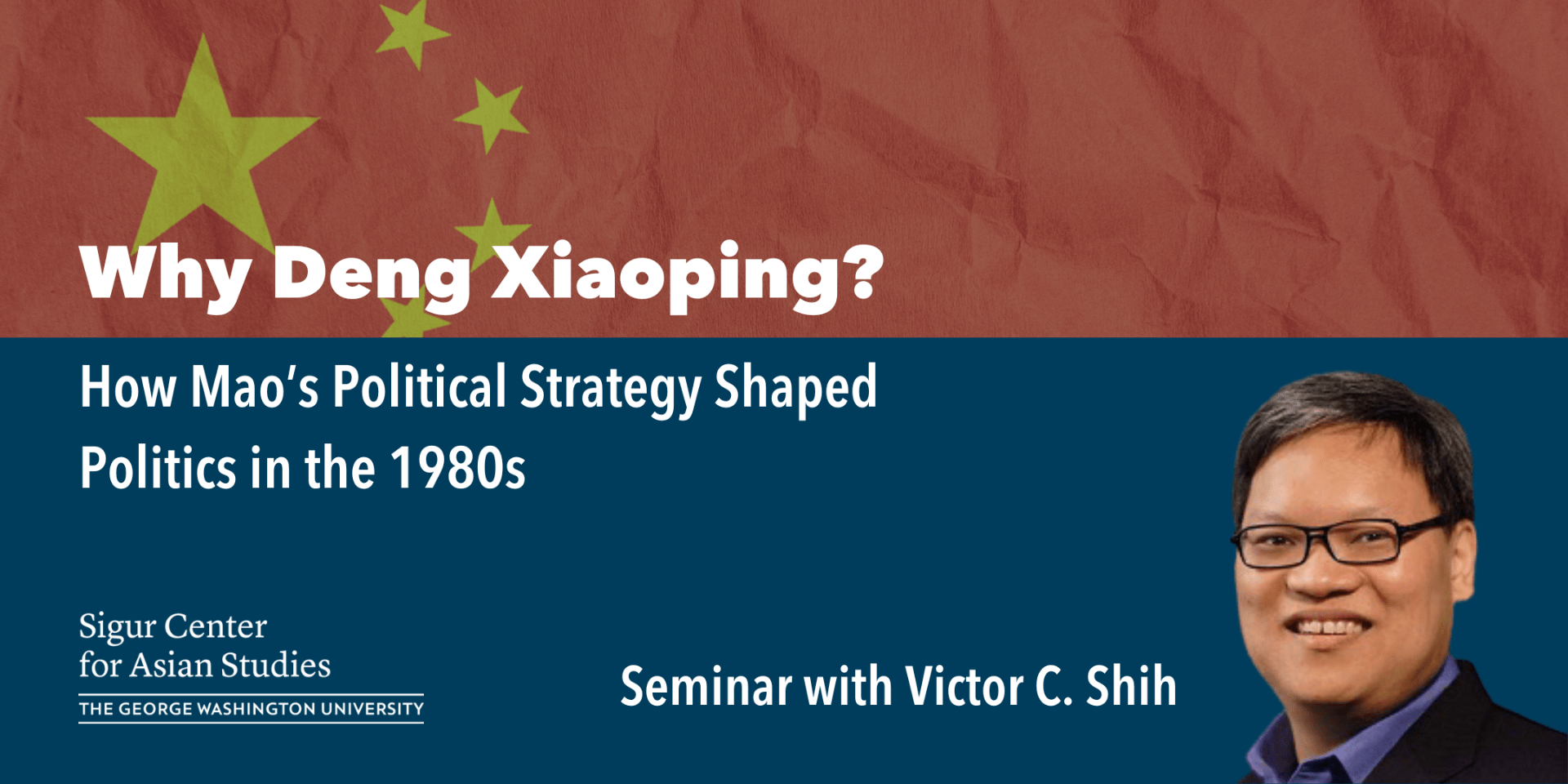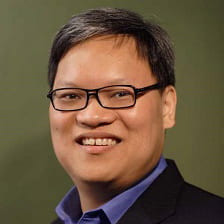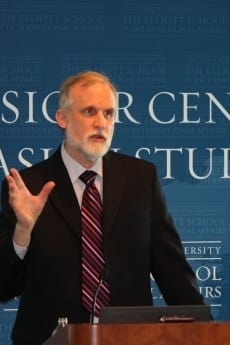Wednesday, September 14th, 2022
12:30 – 2:00 PM EDT
Room 505
1957 E ST NW
In-Person ONLY
NOTE: All non-GW affiliated attendees attending the event IN-PERSON must comply with GW’s COVID-19 policy in order to attend this event, including showing proof of vaccination and masking indoors. For frequently asked questions, please refer to GW’s guidance.
About
After the Lin Biao incident in 1971, Mao rehabilitated Deng Xiaoping and immediately thrust him into the powerful position of the vice chairman of the Central Military Commission. This position set him on a course to be “first among equals” in the 1980s, despite later dismissal by Mao. Why did Mao put Deng in charge of the PLA when there were more plausible candidates from the perspective of military experience? This talk will discuss the historical backdrop of Mao’s “Coalitions of the Weak” strategy which led to Deng’s rehabilitation. Deng’s emergence as a powerful politician with military support in turn shaped how politics in the 1980s unfolded.
Registration
The event is free and open to the public. If you have already registered but will no longer be able to attend, please cancel your registration.
Speaker
Victor C. Shih is Ho Miu Lam Chair Associate Professor in China and Pacific Relations at the School of Global Policy and Strategy at the University of California, San Diego specializing in China. He is the author of a book published by the Cambridge University Press entitled Factions and Finance in China: Elite Conflict and Inflation and also a new book Coalitions of the Weak: Elite Politics in China from Mao’s Stratagem to the Rise of Xi. He is also editor of Economic Shocks and Authoritarian Stability: Duration, Institutions and Financial Conditions, published by the University of Michigan Press. This book uses comparative cases to explore how authoritarian regimes respond to economic crises. He is further the author of numerous articles appearing in academic and business journals, including The American Political Science Review, Comparative Political Studies, Journal of Politics, and The Wall Street Journal. Shih served as principal in The Carlyle Group’s global market strategy group and continues to advise the financial community on China related issues. Shih graduated summa cum laude at the George Washington University and received his Ph.D. in government from Harvard University. He is currently working on several papers using quantitative data to analyze the Chinese political elite and China’s defense industry.
Moderator
Bruce Dickson received his B.A. in political science and English literature, his M.A. in Chinese Studies, and his Ph.D. in political science from the University of Michigan. He joined the faculty of The George Washington University and the Elliott School in 1993. Professor Dickson’s research and teaching focus on political dynamics in China, especially the adaptability of the Chinese Communist Party and the regime it governs. In addition to courses on China, he also teaches on comparative politics and authoritarianism. His current research examines the political consequences of economic reform in China, the Chinese Communist Party’s evolving strategy for survival, and the changing relationship between state and society. His research has been supported by the National Science Foundation, the Smith Richardson Foundation, the US Institute of Peace, and the Woodrow Wilson International Center for Scholars.







Interesting topic. Would be great if it is live-streamed online or at least a recording shared. Thanks.